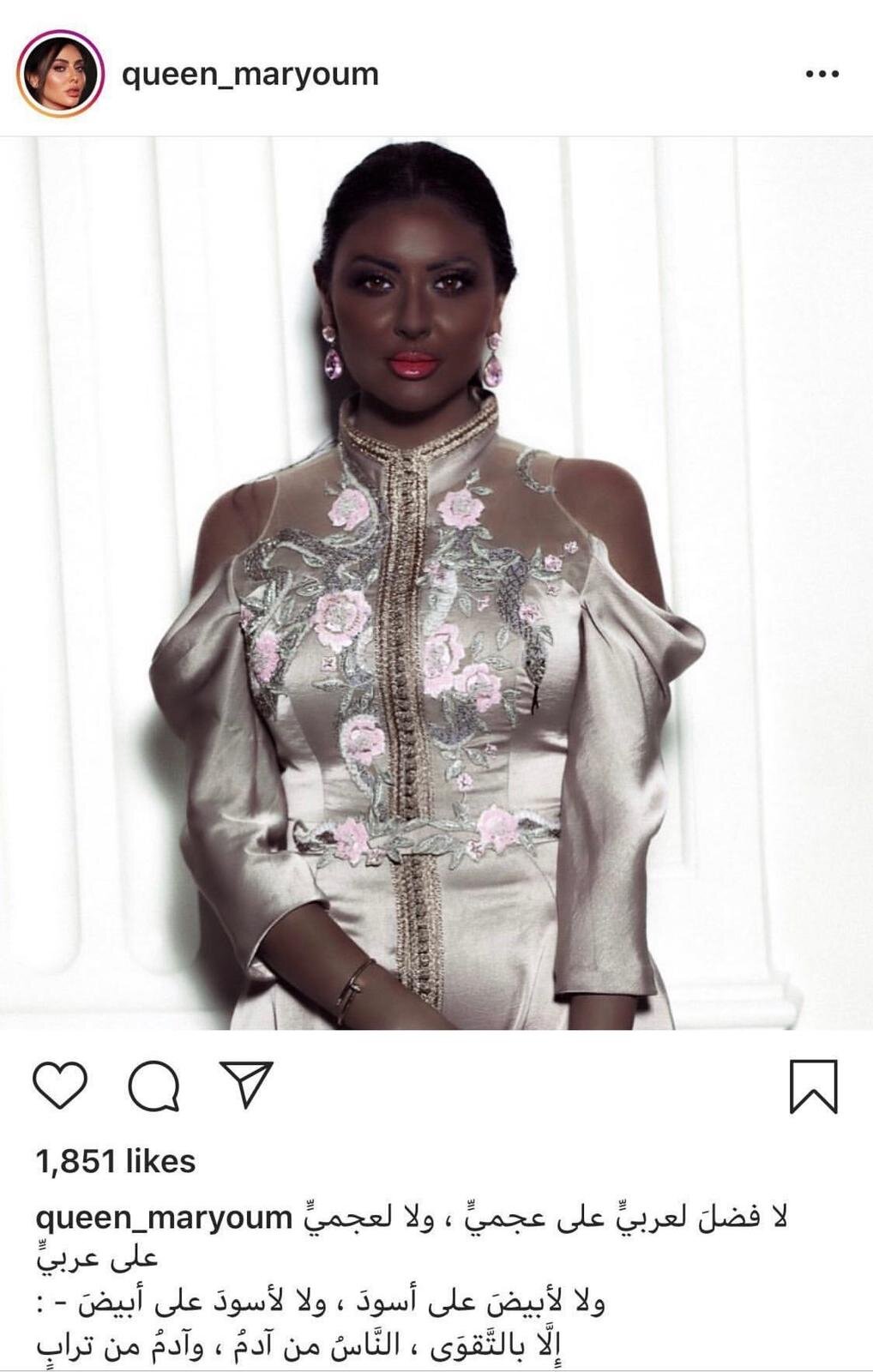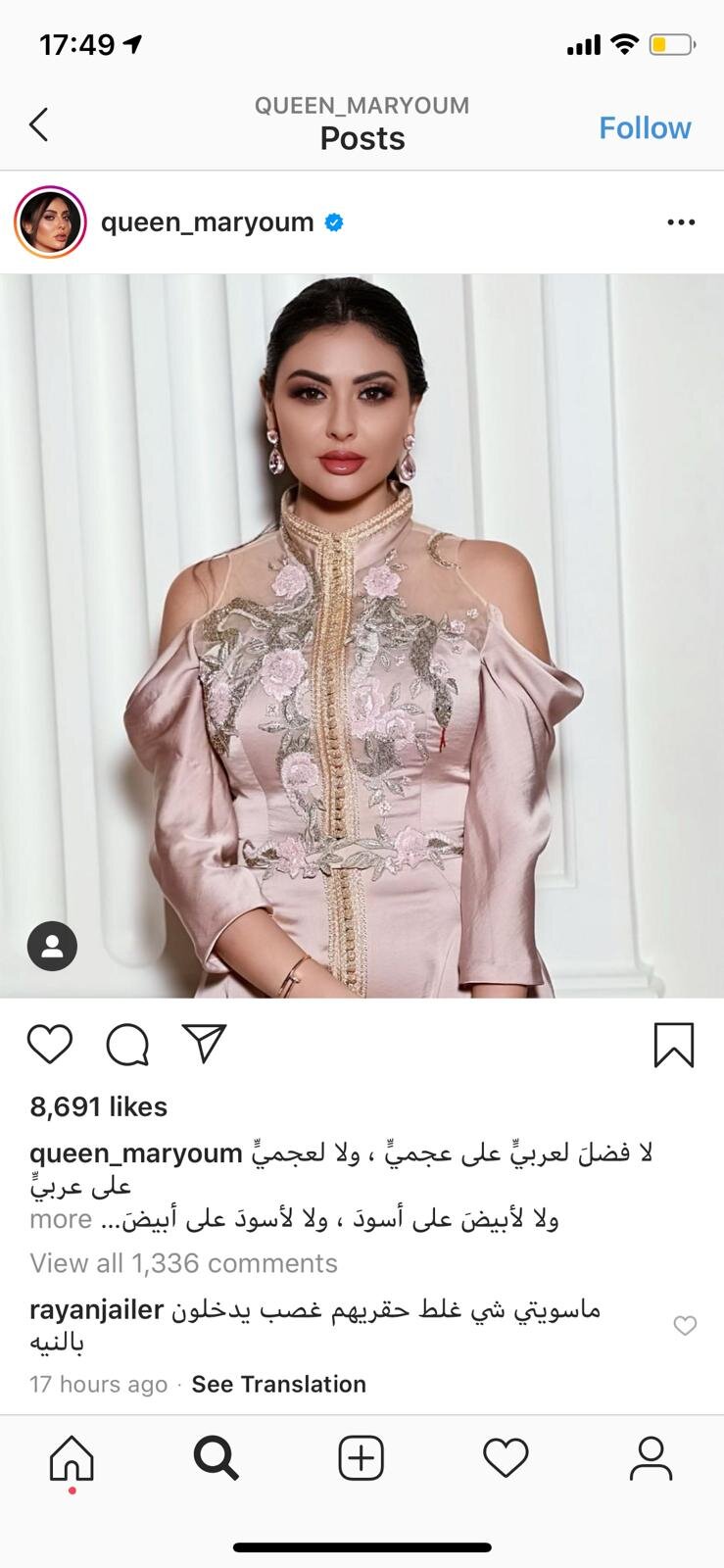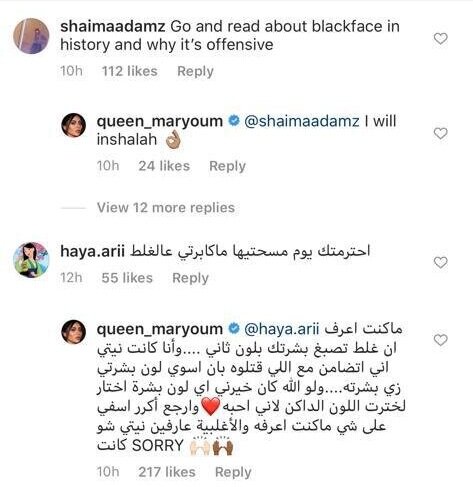#BLACKLIVESMATTER #EVERYWHERE Confronting Anti-Black Racism in the GCC
I sat down to do some work today but was heavily distracted- the internet is SO LOUD and I’m SO PROUD. It’s exhausting to sift through the terrible state of humanity and to engage with people we disagree with, but the time is now. Corona has taken us all the way down to our survival instincts, and it’s time to reprogram some old beliefs that are keeping us from progressing as a race.
A race. One, single race. Although many people like to deny it, we all come from Africa. Everything we do and say is cultural and can be changed - no behavior is inherent in your genes. I knew racism was bad in the Middle East, and that blackness is punished as it is everywhere else…what I hadn’t realized was that people in the region commonly DENY the existence of racism. That they really think racism isn’t actually racism if it’s “just a joke.”
I received an uninformed DM saying that “‘slavery’ ended when the prophet Mohamad came…he ended slavery in the Muslim world…We don’t have racism against black [people].”
Honestly, the first thing I felt was sadness. Here’s a fully grown person who has clearly been underexposed to reality. Who was told something, assumed it was true, and never experienced enough of the world around them to see otherwise.
Sadly, slavery is alive and well in the Muslim world.
Just last year in Kuwait, there was huge uproar regarding human trafficking on Instagram and a 2015 article by The Guardian titled “Women from Sierra Leone 'sold like slaves' into domestic work in Kuwait” presents some of the horrifying abuse that workers suffer. The article cites a Human Rights Watch report on the abuse of domestic workers in Kuwaiti households,
“The sense of having ‘paid for’ or having ‘bought’ a worker makes some employers feel entitled to treat the worker however they wish.”
I found a book titled “Speaking with Their Own Voices: The Stories of Slaves in the Persian Gulf in the 20th Century” by Jerzy Zdanowski…just the introduction BLEW MY MIND and woke me up to my own ignorance and naïveté. There are entire chapters and firsthand accounts of different CATEGORIES of slavery in the GCC, including:
Africans and their children who were kidnapped on pilgrimage to Mecca
Yemenis kidnapped by Bedouins
Slaves born into slavery, usually into households
Male slaves who were usually laborers and specifically pearl divers (side note: many free pearl divers lied and said they were slaves to avoid paying debts to merchants)
“Makrani” slaves from the slave trade that were taken from East Africa to Pakistan via Oman in the 1650’s, and from Pakistan through Persia to the GCC AS LATE AS THE 1930’s. Mind. Blown. (side note: “today many Pakistani of African descent are referred to as Makrani, whether or not they live there. On the coast they are also variously referred to as dada, sheedi and syah (all meaning black), or alternatively, gulam (slave) or naukar (servant). The children of Sindhi Muslim men and sidiyani (female Africans) are called gaddo—as in half-caste.” Source)
And finally, female slaves. My previously mentioned conversant also mentioned, “in the Arab world…rich families had nannies with dark skin who were treated like a mother…and even take those families’ last names. They lived with them, traveled with them, raised their kids.” She meant to say that this was not slavery, that this was love and care. However, it is clear that female slaves were taken as concubines and free domestic labor. In her article “Confronting anti-black racism in the Arab world,” Susan Abulhawa writes that the Arab slave trade,
“targeted women, who became members of harems and whose children were full heirs to their father's names, legacies and fortunes, without regard to their physical features. The enslaved were not bought and sold as chattel the way we understand the slave trade here, but were captured in warfare, or kidnapped outright and hauled across the Sahara.”
What’s most shocking to me is not that women were enslaved, but that I am surrounded by people who insist that it was a form of kindness to incorporate female slaves into your family. Writes Zdanowski, there is
“proof that [female slaves] were beaten, divorced against their will and separated from their children. Separation from their children was the main cause of female slaves absconding.”
On top of dealing with the ignorance of others, I have to come face to face with my own. Not only was I unaware of how extensive the slave trade was in the Gulf, I also didn’t know about recent happenings such as hundreds of Zimbabwean women being sexually trafficked to Kuwait or why the word “khal” is offensive (not that I ever have or ever will use it!). It can be overwhelming to come face to face with your own shortcomings…but we have to start somewhere.
In addition to educating yourself and speaking more sensitively, what else can we do? (FYI, pictured is a woman discovering that blackface is offensive, but admitting she was wrong.)
Put your money (and your time) where your mouth is. Start by donating to Social Work Society (SWS Kuwait).
Among their many activities, they hire legal help and counseling support for abused workers, support to women at the Migrant Shelter, and help trapped workers get back home (particularly those from African nations that do not have embassies in Kuwait).
They’re also currently feeding over 10,000 people. You can donate money through Faye Sultan or take the following supplies to the Evangelical Church:
1 to 2 litres of cooking oil
500 to 750 ml of tomato paste
5 kilos basmati rice
500g to 1 kilo lentils
eggs
cans of chunk Tuna in olive oil
cans of fava beans/chickpeas/foul
cheese
chocolate bars
a kilo of potato
a box of cucumber
some garlic
some onion
half kilo of sugar
box of tea
box of coffee
I’m also offering tarot readings in exchange for charity donations. If you have any additions, comments, edits, or suggestions please chime in….let’s do this, fam!
P.S. It was hard but I think the person who DMed me eventually started to see that there was a lot more to learn. I thank them for being patient with themselves as they shift their perspective in the most important way!




